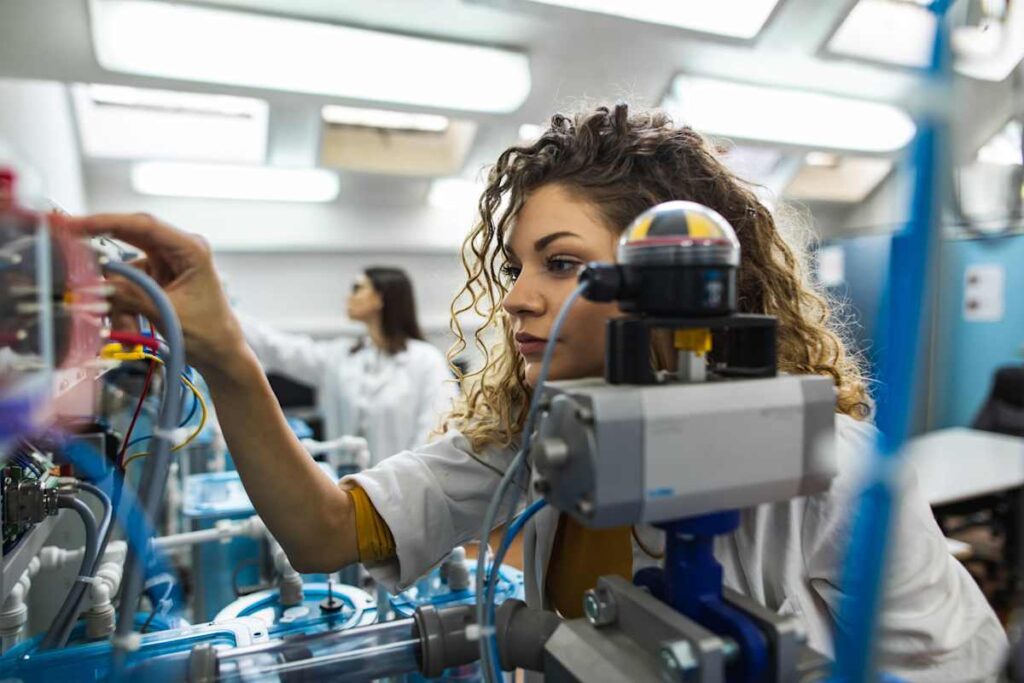
As the Economic Reform Roundtable sharpens Australia’s focus on prosperity, investing in quantum-enabling technologies emerges as a strategic imperative. This investment is crucial for developing the infrastructure and skills necessary to power a quantum economy that is strategically important for Australia’s future.
Quantum technologies are already transforming fields such as medicine, energy, electronics, and defense, delivering tangible benefits today. While quantum computing often dominates the headlines and attracts significant funding, many of the most exciting breakthroughs in quantum science are occurring in other areas, such as through powerful new sensors, materials, and devices.
Beyond Quantum Computing: Diverse Advancements
Building scalable, fault-tolerant quantum computers remains a significant scientific challenge, prompting experts to call for more realistic expectations regarding when and how this technology will truly materialize. In contrast, other branches of quantum technology are already yielding substantial advancements.
Healthcare Innovations
In the healthcare sector, quantum sensors capable of detecting early-stage cancer by analyzing mid-infrared molecular vibrations demonstrate a profound application of quantum mechanics. These sensors leverage quantized molecular energy states to differentiate healthy tissue from abnormalities with unprecedented sensitivity.
Moreover, researchers are exploring spasers—nanoscale lasers utilizing surface plasmon amplification—to selectively eliminate cancer cells. When targeted directly to tumors and activated externally by light, spasers present an innovative pathway for precise, minimally invasive photodynamic therapies.
Energy and Electronics
In the energy sector, innovative quantum thermodynamic processes are enabling next-generation solar panels to produce electricity even at night through radiative cooling. By absorbing ambient heat to generate electricity in addition to light, these panels represent a significant breakthrough in renewable energy generation.
The electronics industry continues to harness quantum effects to achieve extreme miniaturization. Quantum tunneling is being integrated into transistor designs, shrinking electronic components to nanometer scales and enabling vertically stacked 3D transistor architectures. This approach promises superior performance, reduced power consumption, and compactness, all of which are crucial for advanced computing and artificial intelligence systems.
Revolutionizing Defense and Navigation
In defense and navigation, quantum inertial navigation systems (QINS) and quantum magnetometers offer precise positional tracking independent of GPS signals. Utilizing quantum interference and spin dynamics, these devices ensure exceptional accuracy even in GPS-denied or compromised environments.
Collectively, these advances underscore how quantum principles are already reshaping real-world technologies, profoundly influencing how we navigate, observe, diagnose, and power our world—delivering immediate, impactful benefits that surpass the still-emerging promise of quantum computing.
Building a Skilled Workforce
As quantum devices evolve, investing in specialized training and creating dedicated entities to foster quantum device research becomes increasingly crucial. Building quantum systems requires more than bold vision and flashy presentation skills—it demands practical skills in nanofabrication, electronics, optics, materials science, and systems engineering.
Recognizing this, Australian universities must enhance their programs to prepare a highly skilled and multidisciplinary workforce. By establishing focused interdisciplinary training programs, they must equip students with the practical expertise needed to design, build, and test advanced quantum systems.
This creates exciting new career opportunities not only for quantum physicists but also for engineers, computer scientists, and materials researchers. To accelerate these efforts, institutions like Monash University could establish an Institute for Quantum Device Engineering. Such an institute would serve as a hub to unite experts from physics, engineering, materials science, and computing, driving cutting-edge research and facilitating real-world applications.
Thinking Beyond Algorithms
Quantum breakthroughs will not arise solely from coding expertise. Instead, they will emerge through a deliberate synergy of deep theoretical insights, technological innovation, original thinking, and precision instrumentation. The true revolution will stem from compact, specialized devices meticulously crafted to harness quantum phenomena, quietly transforming our world.
However, current trends indicate an excessive allocation of resources toward quantum computing, overshadowing the immediate and efficient advancements that can be achieved through advanced supercomputing. While investment in emerging technologies is vital, it’s equally important to adequately support and optimize existing high-performing fields such as quantum device research.
Additionally, today’s educational landscape increasingly emphasizes coding at the expense of fundamental literacy, logical reasoning, and core scientific principles, risking the neglect of essential foundational knowledge among our promising youth. Universities should respond by emphasizing foundational concepts and critical thinking over fleeting technological trends. We must teach students fundamental principles, not merely recipes or algorithms.
Robust STEM education must prioritize core competencies in mathematics, physics, and engineering, equipping students with essential depth and rigor to innovate effectively, because the future remains fundamentally physical, shaped profoundly by our knowledge, concepts, and innovations across quantum technologies, AI, robotics, nuclear science, and beyond.
Mastering the fundamentals is crucial for success in this rapidly evolving landscape, ensuring that Australia remains at the forefront of the quantum revolution.




